Energy sector
On the Ho Chi Minh City Law Newspaper, there is an article: "Hot: New regulations on the mechanism and time to adjust average retail electricity prices".
According to the new regulations, when the average retail electricity price increases by 2% or more compared to the current average retail electricity price, the electricity price is allowed to be adjusted upward.
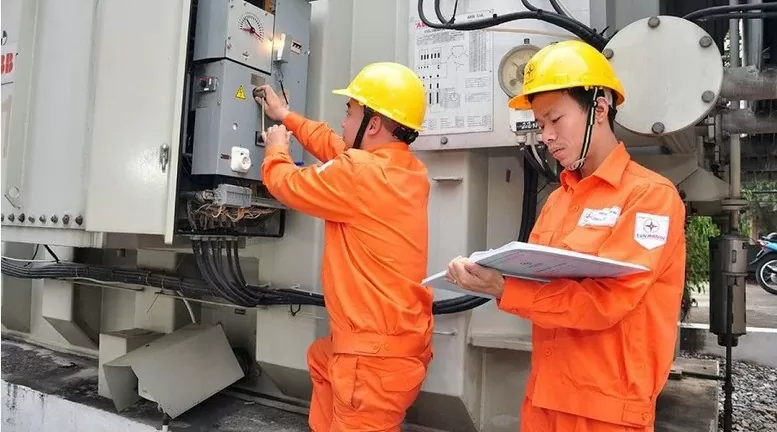 |
| According to the new regulations, when the average retail electricity price increases by 2% or more compared to the current average retail electricity price, the electricity price is allowed to be adjusted upward. Photo: VGP |
According to Decree 72/2025, every year, after Vietnam Electricity Group (EVN) publicly announces the cost of electricity production and business in year N-2, the average annual retail electricity price is reviewed and adjusted according to objective fluctuations in input parameters of all stages and the allocation of other costs not included in the electricity price.
During the year, the average retail electricity price is reviewed and adjusted based on updated electricity generation costs, electricity purchase costs from power plants providing ancillary services according to basic input parameters in the electricity generation stage and other costs not included in the electricity price.
The Investment newspaper published information: "By the end of 2024, the Petroleum Price Stabilization Fund will have 6,067 billion VND left."
According to the Department of Domestic Market Management and Development, Ministry of Industry and Trade, by the end of 2024, the Petroleum Price Stabilization Fund will have a surplus of VND 6,067.2 billion.
This balance is currently held at 30 major petroleum traders. The balance does not include the balance of the Petroleum Stabilization Fund of traders who are no longer major petroleum traders.
Specifically, the largest balance is at Vietnam National Petroleum Group (Petrolimex) at 3,080 billion VND; Ho Chi Minh City Petroleum Company Limited is 328.3 billion VND; Vietnam Oil Corporation (PV Oil) is 138.4 billion VND; Military Petroleum Corporation Limited Company is 299.8 billion VND; Dong Thap Petroleum Trading Joint Stock Company is 460.5 billion VND...
The interest arising on the balance of the Petroleum Price Stabilization Fund by the end of 2024 is 3.17 billion VND.
Giao thong newspaper published an article: "Basis for adjusting electricity prices according to Power Plan VIII: What does the Ministry of Industry and Trade explain?"
According to the Adjusted Power Plan VIII, with the strong increase in investment in clean power sources to meet the needs of socio-economic development, the average electricity price in 2030 (calculated in 2020 USD value) is 9.1 - 9.4 Uscent/kWh. Assuming the USD inflation rate is maintained at about 1.5%/year and the average depreciation of the VND against the USD is about 1.5%/year in the period 2025 - 2030, converted to current USD, the average electricity price in 2030 is about 10.6 - 10.9 Uscent/kWh.
Compared to international standards, according to the Ministry of Industry and Trade, the electricity price by 2030 according to the adjusted Power Plan VIII is equivalent to the electricity price in 2023 of Indonesia (10.1 US cents/kWh, per capita income of 4,287 USD/person) and Thailand (10.7 US cents/kWh, per capita income of 7,058 USD/person).
Import and export sector
Bnews.vn newspaper published the information: "British seafood enters the Vietnamese market, expected revenue of 26 million USD".
The UK Department for Environment, Food and Rural Affairs (Defra) said on April 1 that Vietnam has granted market access to fresh British seafood, estimated to bring the country's seafood industry more than £20 million ($26 million) over the next five years.
 |
| Vietnam is considered a potential market for high-end British seafood products. (Photo: Nguyen Thanh/VNA) |
Under the agreement between the two countries, UK seafood exports will be based on Vietnamese demand, with current exports increasing year on year. According to Defra, the agreement opens up significant opportunities for fresh seafood exports from the UK to Vietnam, which is one of the countries with the highest per capita seafood consumption in the world and the highest in Southeast Asia. On average, each Vietnamese person consumes 37kg of seafood per year.
VTV Times published an article: "Vietnam promotes the import of source technology from the United States".
The new import tax rate schedule issued under Decree 73 of the Government is Vietnam's initiative in the context of many fluctuations in the world economy. However, balancing the trade balance with international markets is also one of the important goals of Vietnam's import-export strategy until 2030, including the US market.
Ms. Nguyen Cam Trang - Deputy Director of the Import-Export Department, Ministry of Industry and Trade - said: "In order to balance the trade balance with this market, we need to promote the import of high technology and source technology from this market. Therefore, it is necessary to have measures to facilitate Vietnamese enterprises in importing source technology from this country as well as to make the United States feel secure in exporting high technology and source technology from the United States to Vietnam.
Currently, we are targeting double-digit economic growth. To achieve this growth target, we have no other choice but to invest in high-tech science. To be able to import high technology, attract international investment in the high-tech sector, and increase production of high-tech industries, we clearly declare a message that Vietnam can control technology, control intellectual property, and ensure that these technologies when exported to Vietnam will not flow to another country without the permission of the exporting country."
E-commerce sector
VTV Times has an article: "Legalizing regulations, "clearing the name" of crypto assets"
Not only is it risky for consumers, the lack of a clear legal framework is clearly causing Vietnam to miss out on many opportunities from the cryptocurrency market. A market whose annual transaction value is more than double the total agricultural export turnover, but which does not contribute anything to the budget.
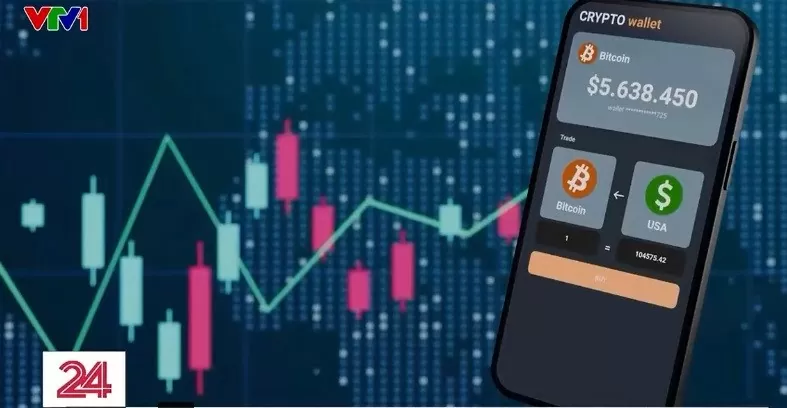 |
| Not only is it risky for consumers, the lack of a clear legal framework is clearly causing Vietnam to miss out on many opportunities from the cryptocurrency market. |
Many Vietnamese businesses in this field are foreign legal entities. Therefore, experts assess that it is necessary to soon legalize trading and investment activities of cryptocurrencies and digital assets to help promote the flow of billions of dollars in the economy.
First, having a legal framework for cryptocurrency and digital asset transactions will create new sources of revenue for the budget.
Dr. Dang Minh Tuan - Chairman of the Vietnam Blockchain Alliance - assessed: "When transactions are put into risk management, they will be limited, so investors and businesses must update and fully monitor information from management agencies about these legal framework regulations".
"In principle, we can collect value added tax, income tax... and other related taxes. When that currency is officially traded, it will certainly be a significant source of revenue because the current trading volume of the market is very large," said Lawyer Truong Thanh Duc.
The newspaper Nguoi Lao Dong has an article: "E-commerce platforms still cannot pay taxes on behalf of sellers from April 1st".
According to the Law on Tax Administration (amended), from April 1, e-commerce platforms, including foreign platforms and digital platforms with payment functions, will have to deduct and pay taxes on behalf of households and individuals doing business on the platforms.
However, speaking with reporters from the Lao Dong Newspaper, representatives of the exchanges all said it could not be done yet.
Specifically, Shopee representative said that tax deduction, declaration of deducted tax amount and tax payment on behalf of sellers from April 1, 2025 as previously planned will not be carried out temporarily, because it is waiting for the official guiding decree to be issued.
Domestic market sector
On mekongasean.vn there is an article: " India initiates anti-dumping investigation on fiber from Vietnam"
The Department of Trade Remedies (DTR) of the Ministry of Industry and Trade informed that the Directorate General of Trade Remedies of India has initiated an anti-dumping investigation on Elastomeric filament yarn originating or exported from Vietnam and China. The investigated products include Elastomeric filament yarn under the HS codes: 54024400 and 54041100. In order to promptly respond to the incident, the DTR recommends that Vietnamese associations and enterprises producing and exporting investigated goods review the export situation to India; carefully study India's anti-dumping investigation regulations. At the same time, the parties should consider sending comments on the investigated products and the product classification codes proposed by the plaintiff as well as other comments related to the incident within the prescribed time limit and format.
Vnexpress newspaper published an article: "Vietnam imposes anti-dumping tax on galvanized steel from China and South Korea"
The Ministry of Industry and Trade officially announced the decision to impose temporary anti-dumping tax on some galvanized steel products originating from China and South Korea, with the highest temporary anti-dumping tax applied at 37.13% for products originating from China and 15.67% for products originating from South Korea. This is to prevent the rapid increase in galvanized steel imports that could cause serious damage to the domestic manufacturing industry in the coming time. According to regulations, the operator will continue to work with relevant parties to collect and verify information and make a final conclusion. This will be based on a comprehensive assessment of the impact of the case.
Competition and consumer protection
The economic newspaper published the information: "Building a safe and transparent online shopping environment"
The strong development of e-commerce in Vietnam brings many opportunities but also poses many challenges in protecting consumer rights. Counterfeit goods, poor quality goods, and false information are negatively affecting the market. Completing the legal framework and raising awareness of both businesses and consumers are key factors in building a safe and transparent online shopping environment.
According to the Department of E-commerce and Digital Economy (Ministry of Industry and Trade), e-commerce in Vietnam maintains an impressive growth rate of 18 - 25% per year. The size of the e-commerce market in 2024 is forecast to exceed 25 billion USD, up 20% compared to 2023 and accounting for about 9% of total retail sales of goods and consumer service revenue nationwide. However, this development comes with a series of challenges, especially the problem of counterfeit goods, poor quality goods, intellectual property rights violations and false advertising information.
However, the development of e-commerce also poses many challenges, especially the situation of counterfeit goods, poor quality goods, goods not as advertised and violations of intellectual property rights. In addition, consumers do not fully understand and do not keep up with new developments, creating conditions for some businesses and individuals to take advantage, leading to the final result that consumers have to suffer material, mental and health damage...
Currently, content creators, or social media influencers (KOLs), are helping brands introduce quality products, prices, creating trust, even "fever" for consumers to believe in buying and using.
Recently, the Kera vegetable candy product announced by Chi Em Rot Group Joint Stock Company and produced at ASIA LIFE Joint Stock Company (Dak Lak), was promoted by famous people such as Quang Linh Vlogs, Hang Du Muc, Miss Thuy Tien "1 candy equals a whole plate of vegetables" creating waves on social networks. However, the test results from the National Institute for Food Safety and Hygiene Control showed that those who advertised the vegetable candy product on social networks exaggerated the effectiveness of the product. This not only caused material damage and loss of consumer confidence, but also affected the reputation of business organizations and individuals...
This reality, according to Vice President and General Secretary of the Executive Committee of the Vietnam Consumer Protection Association Vu Van Trung, comes from both sides.
Firstly, establishments, organizations and individuals producing and trading on e-commerce platforms lack awareness. For their own benefit, they are willing to put products that do not meet quality standards or do not ensure food safety and hygiene on e-commerce platforms to make illegal profits.
Second, consumers do not fully understand and cannot keep up with new developments, creating conditions for businesses and individuals to take advantage, leading to the final result that consumers suffer material, mental and health damage.
The Law on Consumer Protection 2023, effective from July 1, 2024, marks an important step forward in perfecting the legal framework for consumer protection in e-commerce. Ms. Nguyen Quynh Anh - Vice Chairman of the National Competition Commission (Ministry of Industry and Trade) - said that this law is accompanied by many guiding documents to ensure effective implementation.
Source: https://congthuong.vn/tin-cong-thuong-24-quy-dinh-moi-nhat-ve-gia-ban-le-dien-381165.html





![[Photo] Overcoming all difficulties, speeding up construction progress of Hoa Binh Hydropower Plant Expansion Project](https://vstatic.vietnam.vn/vietnam/resource/IMAGE/2025/4/12/bff04b551e98484c84d74c8faa3526e0)

![[Photo] Closing of the 11th Conference of the 13th Central Committee of the Communist Party of Vietnam](https://vstatic.vietnam.vn/vietnam/resource/IMAGE/2025/4/12/114b57fe6e9b4814a5ddfacf6dfe5b7f)
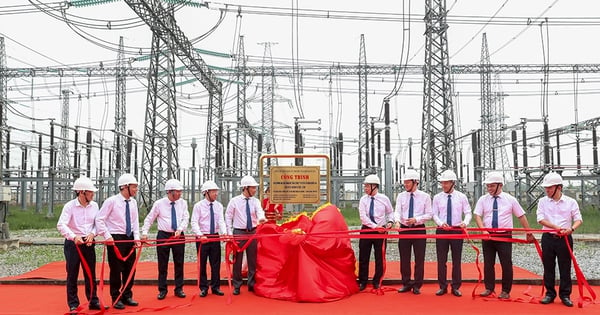
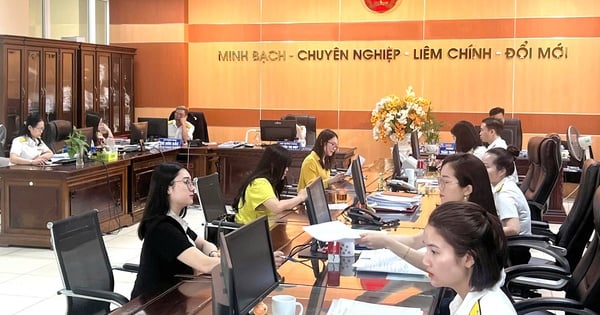
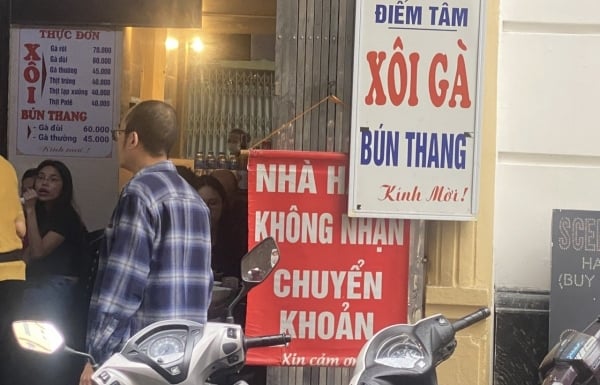
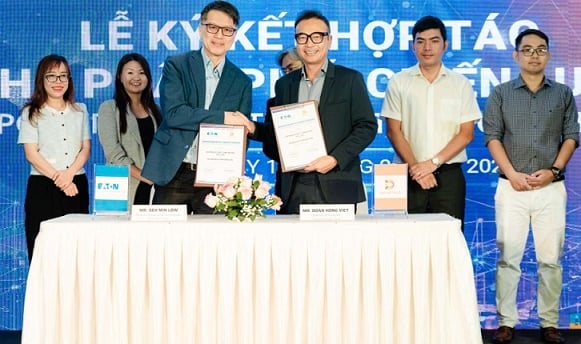
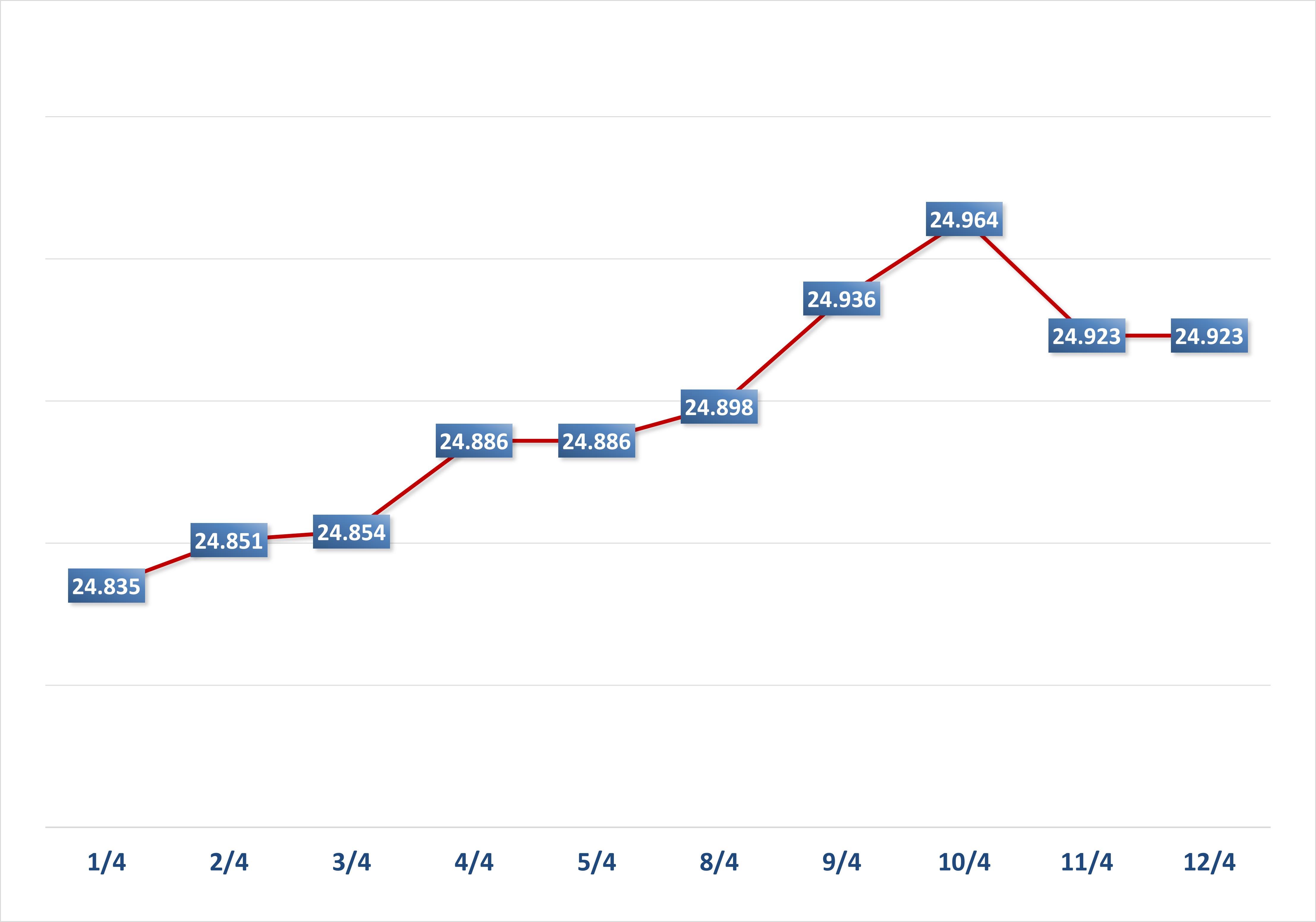




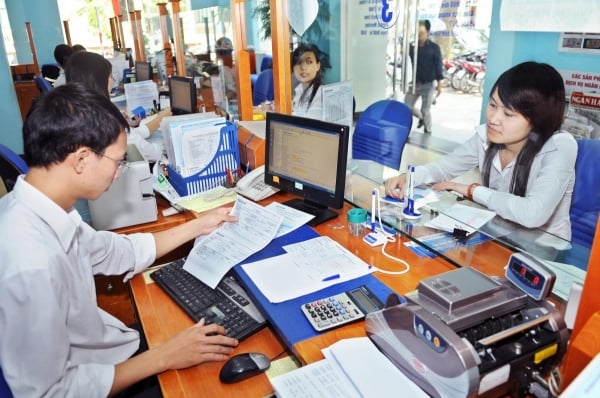




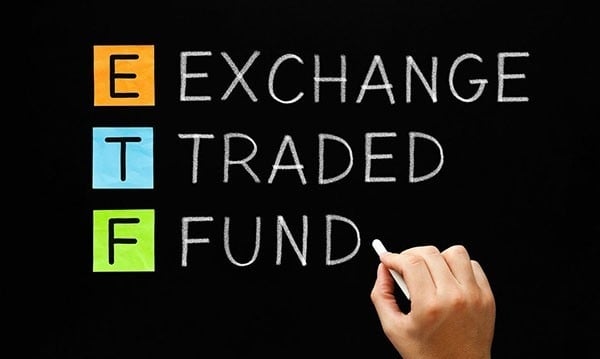














































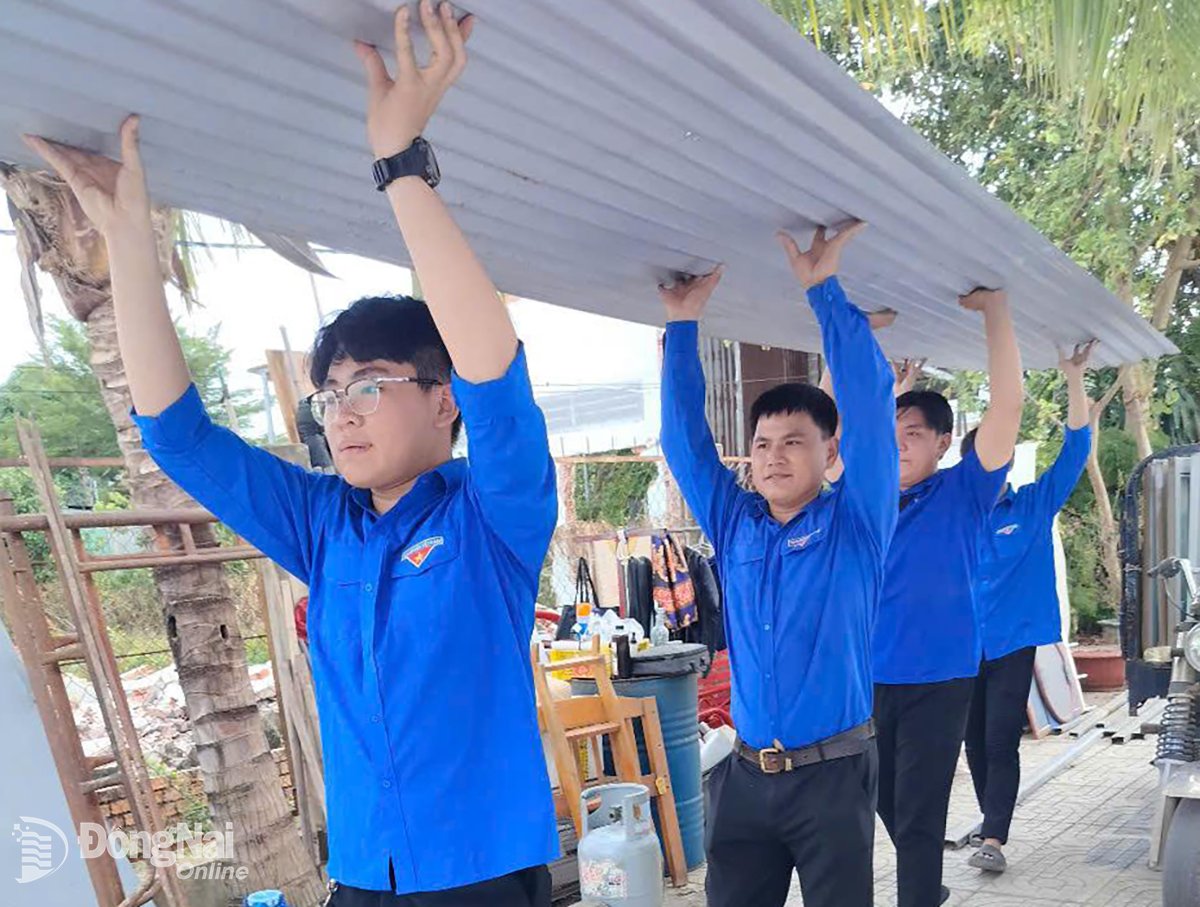

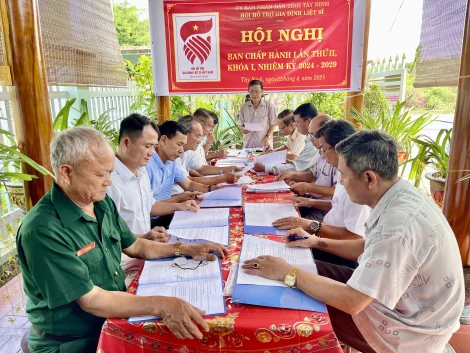
















Comment (0)